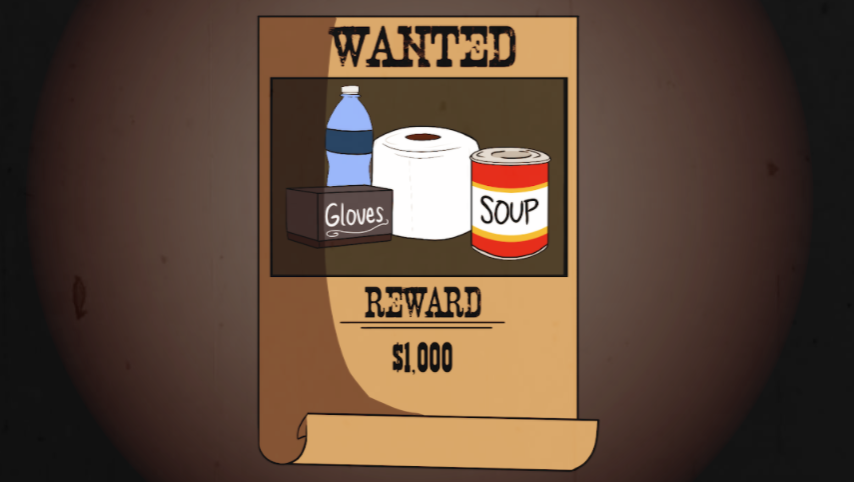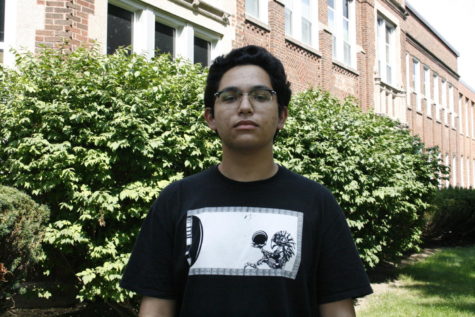Some were prepared ahead of COVID-19 panic buying spree
A comedic wanted sign drawing that pokes fun at some of the items people are scrambling to buy at this time.
March 29, 2020
With how sudden the COVID-19 scare came for the U.S. and the whole world, the lifestyles of thousands across the globe have all been shocked to the core. For many, this means working from home, being quarantined from the outside world and buying for the future. The problem with this arises when too many people go panic-buying at once and suddenly, products are starting to disappear off store shelves.
With the rise of panic-buying comes people known as “doomsday preppers,” people who purchase tens of hundreds of products at a time for themselves, and sometimes to flip them to make a profit.
While others have been desperate to secure supplies for the possible months of quarantining, others, like Clint Anderson, a 49 year old Chicago bank worker in the northern suburbs working for his family of four, have already had products stocked up for a while.
“I didn’t prep anything special for self-quarantine,” Anderson said. “Ever since getting married, we’ve had enough food and supplies to go at least a couple weeks without buying more. I guess that means I started about 25 years ago. We do most of our food shopping at Aldi or Walmart. I’m stumped as to why people pay 30 percent more for the same stuff at other stores.”
Of course, with a situation where products are being bought frequently, there will almost always be the bi-product of those looking for a profit to make off others. These people will purchase products such as hand-sanitizer, masks, gloves or toilet paper, and sell them for higher prices. Recently, websites like eBay and Amazon have begun to crack down on reselling these supplies.
“I think it is unfortunate, especially with medical equipment like masks and gloves,” Anderson said. “Personally, I don’t know how everyone doesn’t have a couple weeks of TP [toilet paper] on hand. How do they live on the edge like that? Having an extra pack of TP is not a COVID-19 thing, it should be a basic life skill.”
A common concern amongst people prepping would be the question of simply what’s useful to purchase and how much they should get. With mass confusion and different variables, it could be near impossible to get all you need and the right amount now. With the possibility of getting more supplies in the future likely to follow a downwards trend, people are looking for what they need and fast.
“I did not buy anything special,” Anderson said. “I am glad to have the same stuff as any other week—things like paper goods, supplies for Taco Tuesday or stuff to make a pizza. It is not a huge investment to stock up. For example, we’ll pick up 24 cans of black beans from Aldi for 12 dollars that will last us a couple months. It would be easy to stock up on basic supplies that would last a couple [of] weeks for the cost of a nice dinner out. Plus not going to the store all the time saves me time, energy and gas, which in turn reduces my carbon footprint.”
For those that have not gotten their shopping taken care of, getting into the stores and prepping now seems to be near impossible to most, but it is not too late to have everything ready for self-quarantine.
“Any given day, supermarkets have about three days of staples on hand,” Anderson said “When 10 times the normal number of people go shopping the same week, stores are going to run out of stock. Unlike socialist countries where there simply is not more food and supplies, the U.S. has an amazing supply line. It will take a little time to recover, but everything will be back on the shelves shortly. Farmers, truckers and everyone along the supply line right through shelf-stockers and cashiers are critical to the success of our country.”



